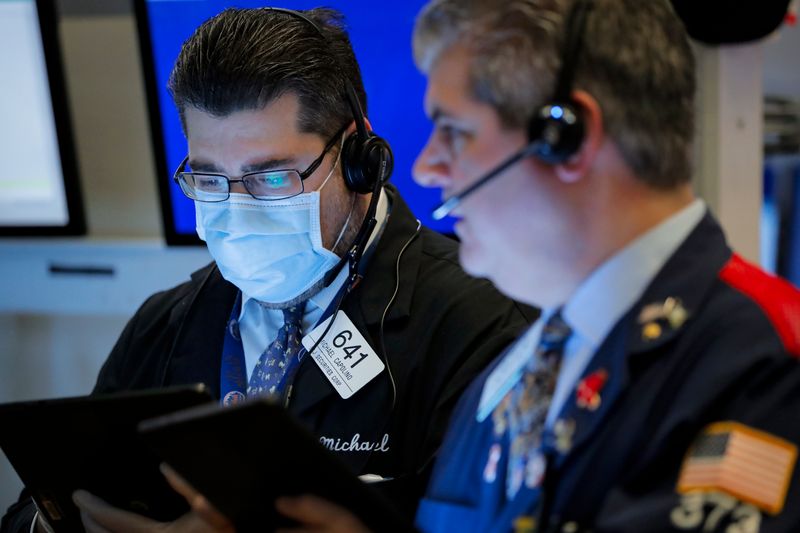By Kate Duguid
NEW YORK (Reuters) - Companies hard-hit by the pandemic rushed to raise debt last month, encouraged by the Federal Reserve's intervention to support the credit market. But for some of the riskier names, those bond offerings have quickly curdled.
Since March 24, the day after the Fed announced its unprecedented stimulus programs, 23 companies have borrowed money in the public market at a rate of 9% or higher, according to data from Tom Graff, head of fixed income at Brown Advisory and from Refinitiv Eikon and MarketAxess.
Of those 23, new bonds from pharmaceutical company Mallinckrodt (N:MNK), movie theater chain AMC Entertainment (N:AMC) and billboard giant Clear Channel Outdoor (N:CCO) are trading around 80 cents on the dollar, a 20 point fall in the two months since they were issued, the data showed.
"Even with how quickly things are changing in this economy, to have a deal go sour in just a few weeks is shocking. Sometimes the huge coupon is a siren song," said Graff.
"I definitely think as the market wakes up to the reality that the Fed isn't going to prevent defaults, and that there will be winners and losers, the junk bond market could get more challenging."
Multiple investors including Graff said that these companies would be unlikely to qualify for the Fed's primary-market bond buying program, which is limited to investment-grade companies and those recently downgraded for investment grade to the first tier of junk.
The three companies did not respond to a request for comment about whether they would qualify for Fed funds. AMC said in a recent filing that it intended to seek potential government benefits such as loans.
In March, the Fed announced a primary market facility to buy new high-grade corporate bonds and a secondary market facility to buy shares in exchange-traded funds. Both were later expanded to include some speculative debt. Its primary facility can buy bonds of companies that have a maturity of five years or less and are rated at least BBB-/Baa3 as of March 22, or if downgraded, must be at least BB-/Ba3.
Mallinckrodt, Clear Channel and AMC are rated deep into junk territory: AMC is rated in the triple-C category, one notch above default, by both S&P and Moody's (NYSE:MCO); Mallinckrodt is also triple-C-rated by S&P, though Moody's has withdrawn the rating; and Clear Channel is rated B- by S&P and B3 by Moody's, a step above triple-C.
The Fed's announcements boosted prices and issuance in both the investment-grade and junk sectors. Junk-bond spreads - the premium investors demand to hold the riskier debt over safer Treasuries - widened about 750 basis points between February and March, using the ICE/BofA high yield index (MERH0A0). The spread has since narrowed by about 350 basis points since peaking on March 23.
Still, a split has become evident between companies eligible for Fed bailouts - high-grade names - and speculative-grade companies unlikely to garner direct support.
"There has been really significant differentiation largely because of these Fed programs," said Erin Browne, managing director and portfolio manager at PIMCO.
Companies in the most distressed sectors have been able to borrow, but at a much higher cost than they previously had.
While not all of the twenty-three 9%-coupon-plus issuers are junk rated - retailer Kohls (N:KSS) and cruise lines Carnival Corp (N:CCL) and Royal Caribbean (N:RCL) are on the precipice - they have all been priced like deeply speculative companies, with coupons as high as 13%.

"I think buyers are assuming that the cash infusion from these debt deals will bridge the company to when the economy can reopen, and therefore the huge coupon is extremely attractive. But really if this one liquidity injection solved a company's problems, the coupon wouldn't be 9%, 10%, 12%," said Graff.